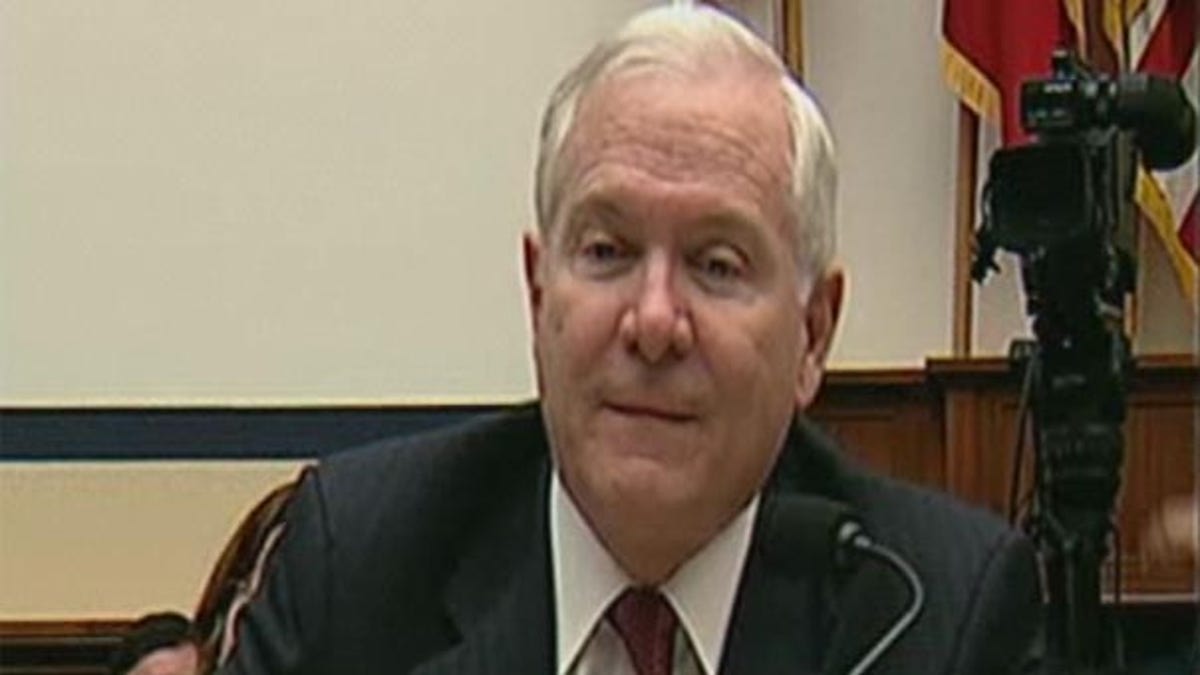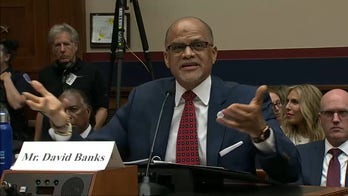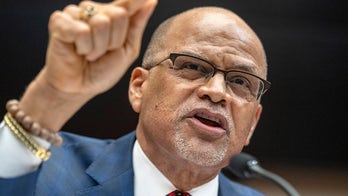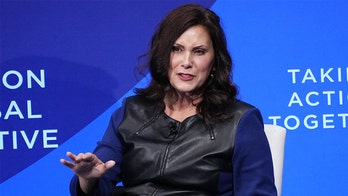
Thursday: Defense Secretary Robert Gates at a House Armed Services Committee hearing. (FNC)
Defense Secretary Robert Gates acknowledged Thursday that the fighting in Libya could drag out into a "stalemate" if Muammar al-Qaddafi clings to power in spite of calls for his ouster.
Gates, testifying alongside Joint Chiefs of Staff Chairman Adm. Mike Mullen on Capitol Hill, said initially that he expects political and economic pressure to eventually drive Qaddafi from power, with the military operation helping by degrading his defense capabilities. But he could not say when that might happen, and said it would be difficult to tolerate a Libyan government with Qaddafi as its leader.
"We have to consider the possibility this could be a stalemate and a drawn-out affair," Gates said.
U.S. defense officials, while not putting a timeline on U.S. involvement, said the U.S. contribution will still diminish right away.
Mullen said the operation is limited since the U.S. isn't going to try to remove Qaddafi from power and NATO is taking over command of operations as of Thursday.
"The short answer, with respect to our commitment, is, yes, it will be significantly reduced, literally starting today," Mullen told the House Armed Services Committee.
Gates said in reference to regime change that, as Iraq showed, it's a costly and long-term proposition. Rep. Mike Coffman, R-Colo., though, said regime change was not the long and costly part, since Saddam Hussein was toppled in a matter of weeks.
Gates still defended U.S. involvement in the conflict.
"I think pressure on Qaddafi has merit and is a worthy objective on its own," Gates said, adding that the Libyan dictator was causing problems not just within his own country, but for its neighbors and the United States' European allies.
"What is going on in Libya has an impact on the rest of the region, and I think Qaddafi unrestrained could have had a very negative effect on the democratic revolutions that are taking place across the region," Gates said, noting Arab League support for action against Qaddafi.
"I think it's also important to bear in mind ... that our allies have come to our assistance in Afghanistan. They have put up nearly 50,000 troops ... because they felt it was in our vital interests," Gates said. "We are stepping up to help the same allies who stepped up to help us in Afghanistan. They have now taken the lead in this."
Gates said the Defense Department can't afford to pay for a military operation in Libya without supplemental funding -- perhaps to be expensed in a coming budget deal. But he said that resources would not be removed from Afghanistan to cover the operation.
But Republican lawmakers groused that President Obama had not declared an act of war or otherwise consulted with Congress on the operation.
"There's not been a formal declaration of war, as I can recall, since World War II," Gates said.
"We obviously would welcome an action by Congress in support of what the president has done. That would obviously provide an opportunity for debate, but the seeking of a resolution, even short of a declaration of war, depends very specifically on the circumstances involved," he added.
The hearing comes as Qaddafi's forces struck forcefully back at rebels aided by allied forces this week, recapturing lost ground and triggering pleas for help from the battered and failing opposition forces.
On Wednesday, sources confirmed that the president has signed orders to allow CIA forces to get in on the ground to help Libyan rebels. It was unclear, however, whether they were already in the conflict zone.




